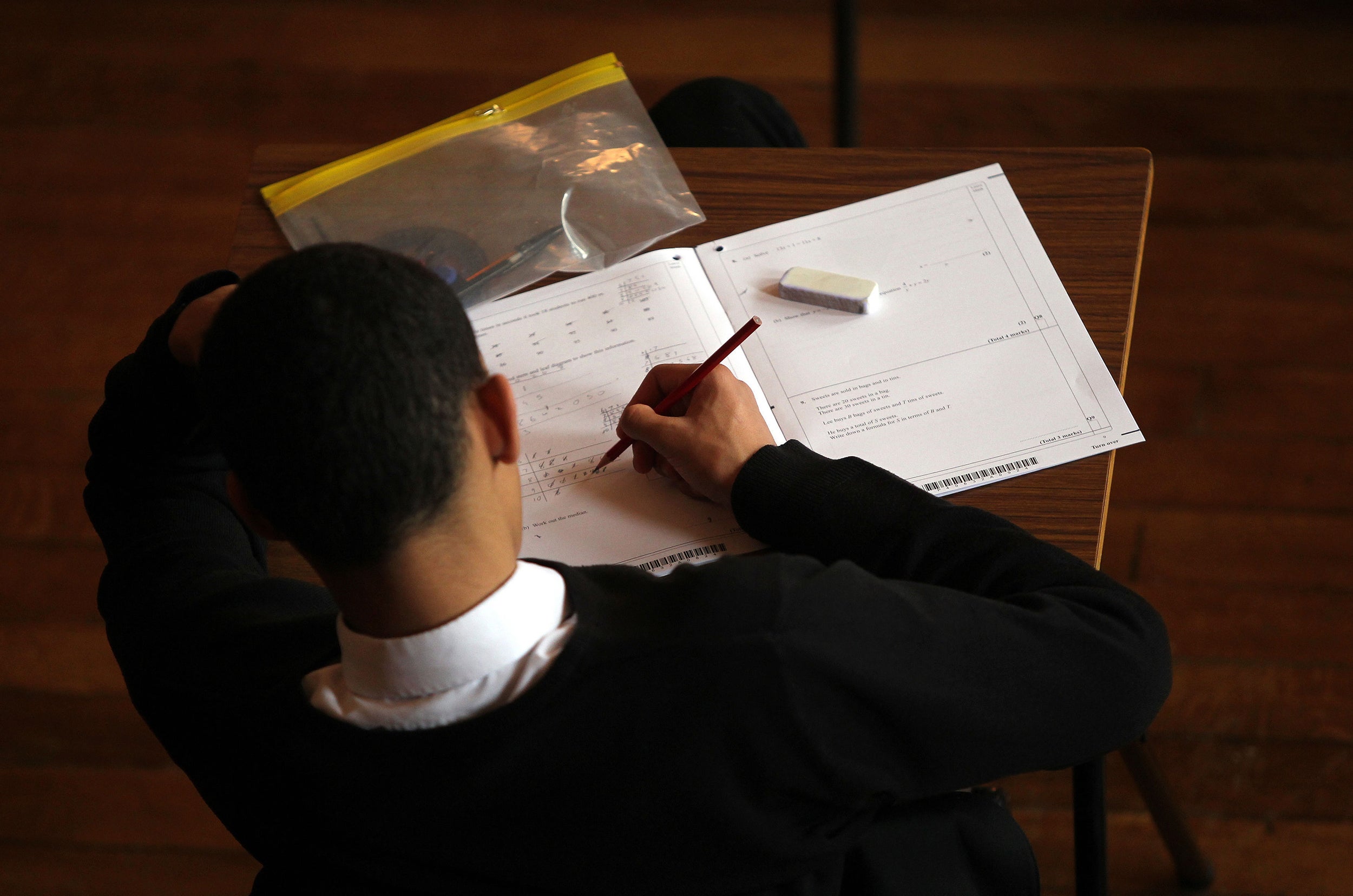Sats tests endangering children's learning and mental health, MPs warn
'High stakes' national curriculum tests for primary school children are too closely linked to school performance and even damage children's education, a cross-party report states

Your support helps us to tell the story
From reproductive rights to climate change to Big Tech, The Independent is on the ground when the story is developing. Whether it's investigating the financials of Elon Musk's pro-Trump PAC or producing our latest documentary, 'The A Word', which shines a light on the American women fighting for reproductive rights, we know how important it is to parse out the facts from the messaging.
At such a critical moment in US history, we need reporters on the ground. Your donation allows us to keep sending journalists to speak to both sides of the story.
The Independent is trusted by Americans across the entire political spectrum. And unlike many other quality news outlets, we choose not to lock Americans out of our reporting and analysis with paywalls. We believe quality journalism should be available to everyone, paid for by those who can afford it.
Your support makes all the difference.Young children are at risk of developing mental health problems as a result of “high-stakes” SATs testing, a cross-party committee of MPs has warned.
Compulsory national curriculum tests taken by primary school pupils are too closely linked to school performance, the House of Commons Education Committee has said, and are having a negative impact on children’s education and wellbeing.
In a new report on primary assessment, the committee found pupils are being taught a narrower curriculum, with staff neglecting arts and humanities subjects by focusing too heavily on maths and English to ensure pupils pass the controversial exams.
It calls for a major overhaul of annual league tables, suggesting a new system be introduced to show a school’s results over a three-year average, instead of over one year.
Committee chairman Neil Carmichael said that while schools need to be held accountable for children’s progress and achievement, action is needed to lower the stakes.
The report, which comes a week before pupils across England sit the tests, warns: “Assessment is closely linked to the accountability system in primary schools, with Key Stage 2 results used to hold schools and teachers to account on the progress and attainment of pupils.
“However, the high stakes system can negatively impact teaching and learning, leading to narrowing of the curriculum and ‘teaching to the test’, as well as affecting teacher and pupil wellbeing.”
It adds: “The stakes should be lowered at primary school in order to combat some of these negative impacts.
“Performance tables should include a rolling three-year average of Key Stage 2 attainment and progress data to reduce the focus on an individual year’s results.”
The committee also suggests that Ofsted should not focus too heavily on SATs when inspecting schools.
Last month, evidence presented by teachers across the country revealed concerns that children as young as four were suffering from mental health problems such as panic attacks, eating disorders, anxiety and depression.
Responding to a survey for the Nasuwt union, more than four-fifths (84 per cent) of teachers and school leaders said they could attribute the pressure of exams and testing to increasing mental health issues seen in children.
The Government has agreed to scrap SATs for six and seven-year olds next year, just one year after pupils were made to sit tougher papers based on a new national curriculum.
The tests, which were condemned by teachers and parents, saw just 53 per cent of pupils reach the new expected standard in reading, writing and maths.
Under the previous system, 80 per cent achieved a Level 4 or above in these core subjects. Ministers stressed the results were not comparable, however.
Union leaders branded the 2016 results a “shambles”, and teachers have since threatened a boycott of all primary school tests, including SATs for 11-year-olds and the proposed new “baseline” assessments for four and five-year-olds.
Mr Carmichael said: “Many of the negative effects of assessment in primary schools are caused by the use of results in the accountability system rather than the assessment system itself.
“The resulting high-stakes system has led to a narrowing of the curriculum with a focus on English and maths at the expense of other subjects like science, humanities and the arts.
“It is right that schools are held to account for their performance but the Government should act to lower the stakes and help teachers to deliver a broad, balanced, and fulfilling curriculum for primary school children.”
Russell Hobby, general secretary of the National Association of Head Teachers said last year’s tests were “a mess of chaos and confusion”, following a series of test leaks and cancellations.
“Add in to this the high stakes nature of the system for school leaders, and you get a toxic mix.”
He added: “The Committee’s call to scrap the publication of results from a single cohort, proposing instead a rolling three year average of Key Stage 2 results, is therefore very welcome. Data is useful, but it is important to recognise its limitations.”
A Department for Education spokeswoman said: “We will consider the recommendations of this report carefully and respond in due course. A consultation relating to primary assessment is ongoing.”
She added that the department has committed to introducing no new tests before 2018/19.
Join our commenting forum
Join thought-provoking conversations, follow other Independent readers and see their replies
Comments